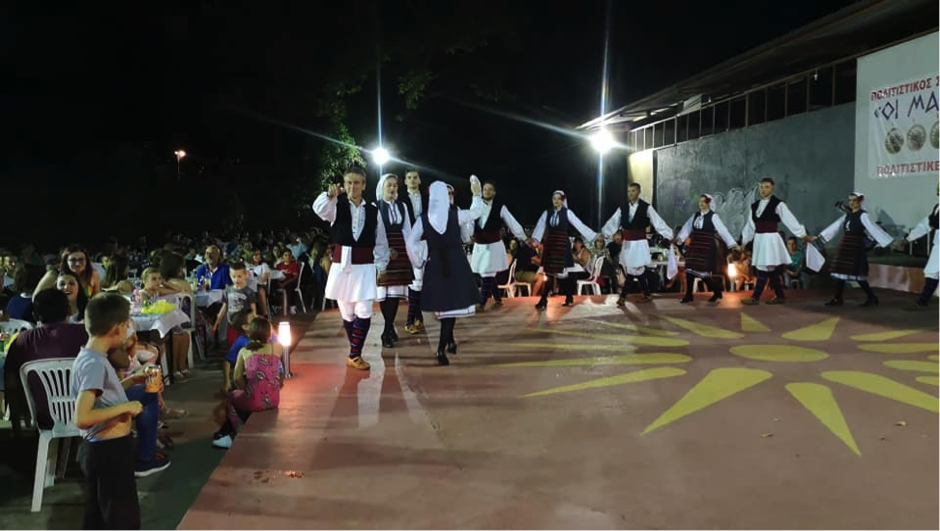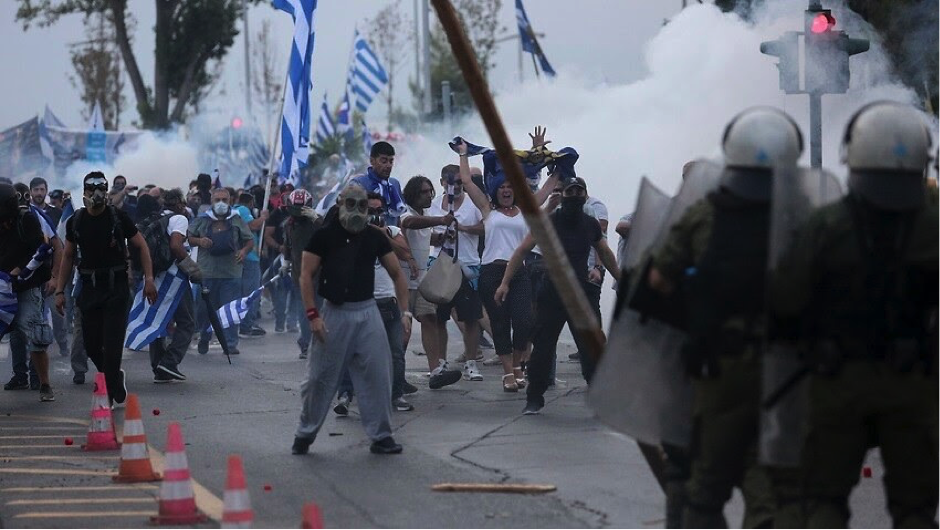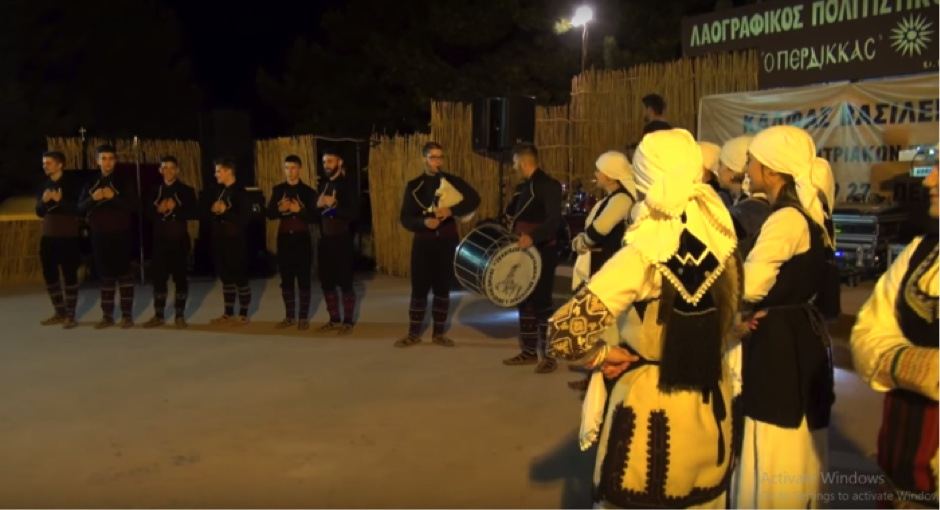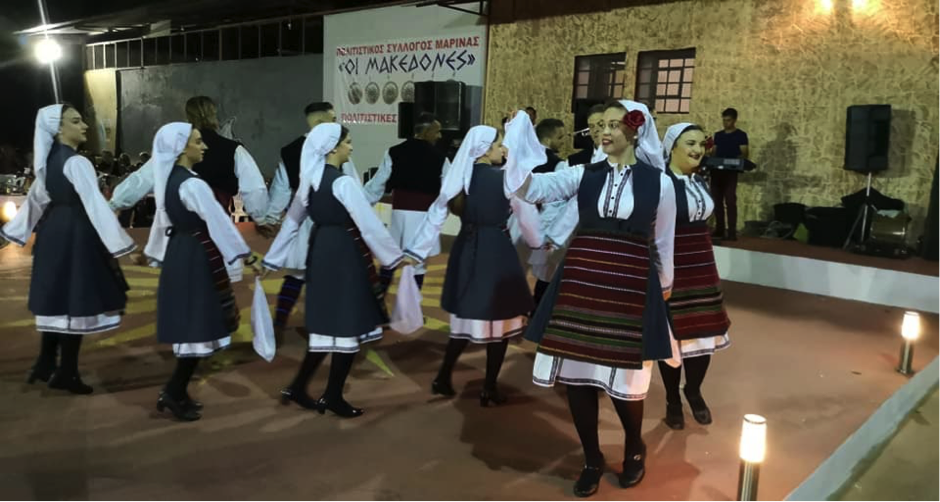In the discourse of the Macedonian naming dispute, a range of issues are discussed by the two conflicting sides, ranging from Alexander the Great, to medieval history, and to early modern history. Internationally and domestically within the two countries, this issue is regarded as a bilateral dispute. However, what many fail to realise is that at the centre of this issue is the ethnic Macedonian identity in northern Greece, and that this is not a bilateral dispute – it is a domestic issue within Greece.
Historically, Greece occupied the territory of northern Greece (Aegean Macedonia) in 1913 for the first time, and this area was predominantly populated by Macedonians. Following forced Hellenisation, ethnic cleansing, and cultural genocide, the status of the Macedonians was changed from a majority to a persecuted minority. Today, Greece, a member of the EU and NATO, continues to pursue ultra-nationalistic policies rooted in 19th-century romanticism and denies basic human rights to its Macedonian minority.
In this article, Elena Sekulovska from the Australian Generation M team attempts to give a voice to the silenced Macedonian minority by conducting interviews with Macedonians that live in Aegean Macedonia. She has chosen to not disclose the identities of the interviewees, as there are serious repercussions for Macedonians living in Greece who speak out against the Greek state.

Thank you for agreeing to do the interview. What made you realise that your identity was Macedonian and not Greek, in a country where identifying as an ethnic Macedonian is stigmatised?
Anonymous A, Solun:
Growing up I didn’t really feel different. I spoke Greek as a mother tongue, alongside Macedonian, at home. At school we got taught propaganda on Macedonia. For example, they teach children that Macedonia is a ‘gypsy-skopian’ and ‘Albano-Bulgarian’ nation with a ‘gypsy’ language. I openly identify as a Macedonian, and in discussions, I stand up for the truth about Macedonia, in a non-provocative and respectful manner. Some of my Greek friends have thanked me for helping them understand the truth about the Macedonian issue as they got taught propaganda at school. As a young Macedonian in Greece I believe in mutual respect and friendship, and I want the Greek public to understand the truth on Macedonia without behaving uncivilised. Through positive discussion and respectful presentation of arguments there could be a positive difference.
Anonymous B, Lerin:
My Macedonian identity was built from an early age, I owe it to my family. My family told me the truth about Macedonia and how the Greeks had oppressed us and continue to silence us. I wish that every family spoke to their children about Macedonia, if they did, Macedonians would be organised and standing up for their rights. In my village, our school operated in the Greek language and we received a Greek education. Macedonian language schools are not allowed to exist here. After having grown up, I got involved in the Macedonian cause and many of my friendships have diminished. It is not easy to be a Macedonian in Aegean Macedonia.
Historically, the Macedonians in Aegean Macedonia were heavily persecuted by the Greek state. Today, Greece is a democratic state and a member of both the EU and NATO. Why is it still difficult for one to publicly express themselves as an ethnic Macedonian?
Anonymous A, Solun:
There is a heavy opposition from the deep Greek state, Church and media. During the anti-Macedonian demonstrations in Solun and Athens, discriminatory promotional material was handed out to students. In the demonstrations, they burned Macedonian flags and called for the Republic of Macedonia to be renamed to “Monkeydonia”. The three biggest football ultras groups from Solun, who usually beat each other up, united and demonstrated against Macedonia – this says a lot. This is clearly hate-speech, yet nobody pressed charges against them. The point itself that a nation demonstrates proudly not for itself, but because it wants to deny the rights of another nation on self-determination is the clearest indication that there is indeed a problem in the Greek society. We are fighting for our existence, and they are fighting for their “greatness”, as if it is a matter of survival.

The fascists who are openly anti-Macedonian are not the biggest threat to us, as one can easily identify them for what they are, fascists. The biggest threat is anti-Macedonianism sponsored by those on the left who claim to stand for multiculturalism, democracy, LGBT rights, liberalism and yet deny us the right to self-identification and continuously tell us we don’t exist. Anti-Macedonianism is the only legal and state sponsored type of racism in Greece.
Anonymous B, Lerin:
This is a result of the systemic assimilatory policies of the Greek state. They have used different methods to assimilate us and give us fear. In the not so distant past, this was through imprisonments, assassinations, ethnic genocide, terror. When the monarcho-fascist system fell in 1974, Greece became democratic and the method in which they silenced us changed from physical to psychological. This means that the only way in which we can preserve our heritage is through songs. Prior to 1992, we weren’t even allowed to sing our songs. In 1992, following heavy pressure from Macedonian activists and the European Union, the Greek police stopped going after those who sang Macedonian songs. Apart from this, politically, the Macedonian cause in Aegean Macedonia, and political activism in general, is in stagnation.
According to you, what is the number of those with Macedonian origins in Greece?
Anonymous A, Solun:
It is very difficult to estimate as under the Greek propaganda, even if we are aware of our ethnic origins, we can keep our language, culture and traditions but only if we are ‘slavophone’ Greeks. You cannot be both a ‘slavophone’ and a Greek, as language is part of ethnicity. The same people who once prohibited our language are now trying to assimilate us peacefully. The Macedonian consciousness has many layers as it is a taboo subject. There are some who are openly Macedonians and want minority rights for the Macedonians. On the other hand, some are extreme Greek loyalists and nationalists, and hate their own people and culture. Whilst others are aware of their heritage but want to leave it in the past, as to them, the ‘dopika’ (local) language is some weird language spoken by their grandparents. This is the most extreme form of assimilation.
Anonymous B, Lerin:
It is very hard to say. There are many types of Macedonians here. A large percent of them are ‘grkomani’ – Macedonians in origin with a Greek consciousness. From a young age, Macedonians are taught in schools that they do not exist, that their ancestors were Greeks who had their identity changed to ‘Bulgarian’ and now again to Greek. There is also a great number of Macedonians who don’t believe the propaganda, they know who they are but fear to publicly declare themselves as Macedonians because they will lose their jobs and have various bureaucratic problems with the Greek state. There are also Macedonians who are not scared of anyone and openly declare themselves as Macedonians. A really small percent of the Macedonians engages in Macedonian activism.

Is there anything else that you would like to add?
Anonymous A, Solun:
Things are slowly getting better. The Macedonian heritage is still present all-over Aegean Macedonia. People have started singing Macedonian songs in the village festivals. There are more associations promoting the Macedonian identity. The diaspora must help us. It needs to be an outspoken representative for the rights of our people and offer us moral, financial and especially legal support. Macedonians should not be afraid to tell the truth about Macedonia, no matter what. We need to expose the lies and propaganda. The fight for Egej is not lost, our people still live here.
Anonymous B, Lerin:
The Macedonians need to wake up. Every Macedonian who respects his heritage and origin has a sacred obligation to never denounce his language and Macedonian origin.
—
Any opinions or views expressed in articles or other pieces appearing in UMD Voice are those of the author alone and are not necessarily those of the United Macedonian Diaspora and its young leaders’ program Generation M; the appearance of any such opinions or views in UMD Voice is not and should not be considered to be an endorsement by or approval of the same by UMD and Generation M.

